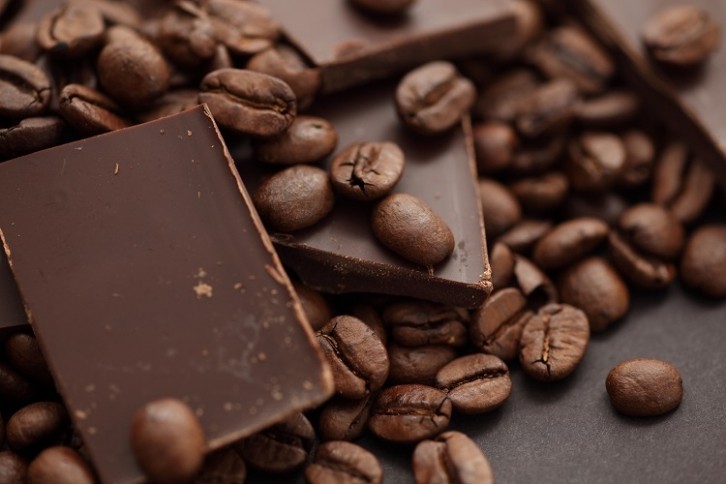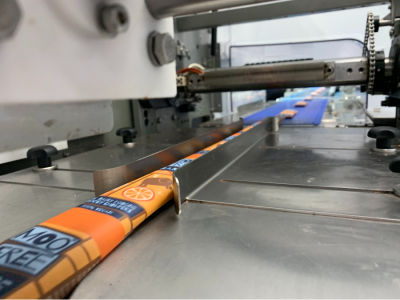A new kind of ‘free from’ category: From cocoa-free chocolate to bean-free coffee

Some of consumers’ best-loved products (think chocolate and coffee) are linked to environmental and human rights challenges. Climate change is threatening production and smallholder farming makes for complex supply chains.
In response, innovators are rethinking production to buildout a new kind of ‘free-from’ category.
At our third annual Climate Smart Food digital event, running 19-21 September, we’ll hear from pioneers in the cocoa-free chocolate and bean-free coffee sector as their pitch their innovations. Registration for the free-to-attend digital summit is now open.
Crafting coffee from non-tropical ingredients
Dutch start-up Northern Wonder is combatting coffee-related deforestation with non-tropical ingredients, co-founder and CEO David Klingen will tell audiences at Climate Smart Food next month.
Klingen says: As the world’s demand for coffee increases, so do coffee plantations — and rainforests are paying the price. Coffee production is one of the leading causes of deforestation. Further exaggerated by climate change, forcing existing coffee plantations to shift to new - higher lands. Over the years, we've seen beautiful initiatives to make coffee production more sustainable. However, to truly combat deforestation, we need more than an evolution. Northern Wonder fuels a revolution bypassing coffee plantations. The start-up spent the last two years working on a coffee alternative with a strict sourcing policy: no tropical ingredients. The ingredients used not only require less land, they also use less water and fewer emissions. Giving a much lower footprint than conventional coffee.
Cocoa-free chocolate with WNWN
UK pioneer WNWN Food Labs is rethinking chocolate, without cocoa. Instead, the start-up is making its dark chocolate alternative from barley and carob on conventional chocolate making equipment. We look forward to welcoming co-founder and CEO Ahrum Pak pitch WNWN’s innovation at Climate Smart Food.
Pak says: Chocolate: delicious, indulgent, irresistible. One of the all time, most popular flavours in all things confectionery. However, enjoying delicious chocolate, by itself or in your favourite cookies or ice cream might not be possible with the current rate of climate change. Chocolate might become an unaffordable luxury, out of reach to many. As ardent choc-lovers, that's not a world we want to imagine, so we’re doing something about it. We’re future-proofing chocolate by making a cocoa-free alternative from low-carbon, sustainable plant-based crops. Our choc is 80% less in CO2e compared to conventional chocolates, and also vegan, caffeine-free, and lower in saturated fats.
Cell-cultured coffee: How STEM makes filter arabica in a lab
France-based start-up STEM is looking to replace unsustainable practices and future-proof flavour with cell-cultured coffee. Co-founder and CSO Dr Chahan Yeretzian will talk us through the innovation at Climate Smart Food.
Behind water and tea, coffee is the third-most drunk beverage in the world. Global consumption is on the rise and it’s possible that demand could triple by 2050. But production is struggling to keep up, with coffee farmers facing major sustainability challenges. Leveraging cellular agriculture, STEM is looking to offer an alternative means of specialist coffee production.
Climate Smart Food will run from 2pm CET to 5pm CET from 19-21 September as we ask how the food industry can help drive a transition towards sustainable food sourcing, production, and consumption.
19 September: Climate Smart Sourcing
Ingredients are a major contributor to FMCGs’ carbon footprints, making sourcing practices crucial to meeting carbon reduction deadlines. But cultivation is not the only consideration: global supply chains are increasingly plagued by disruption and have long been linked to human rights violations. How can sustainability be embedded into global supply chains?
On Day 1 of Climate Smart Food, we’ll be asking how best to mitigate against supply chain disruptions linked to droughts, floods or war; what sustainability legislation means for food majors; and whether regenerative agriculture can truly save the day.
20 September: Climate Smart Production
Feeding growing populations within planetary boundaries means producing more, with less. How can food and beverage makers increase output with fewer natural resources? From making the switch to ‘green’ energy to implementing water saving strategies and rethinking packaging design, we analyse the initiatives decarbonising production.
On Day 2 of Climate Smart Food, we’ll be asking how food majors can decarbonise their direct emissions; where water inefficiencies are most prevalent and how reliance can be reduced; what the future holds for plastic-free packaging; and whether we should increase our focus on the blue economy for sustainable nutrition.
21 September: Climate Smart Consumption
Shoppers often say they want ‘greener’ food and drink, but don’t always act with sustainability front-of-mind. Addressing barriers to climate smart consumption will be key to achieving food system transformation. Consumer demand is also a crucial piece of the food tech puzzle, with pioneers banking on us innovating our way out of the climate crisis. Are Europeans hungry for lab-grown food?
On Day 3 of Climate Smart Food, we’ll be asking what impact brands have on discouraging food waste in the home; how sustainability credentials can best stand out on the shelf; whether European consumers are ready for cultivated meat and precision fermentation dairy; and what the future holds for alternative protein.
Join the conversation live between 19-21 September by registering for free here.




